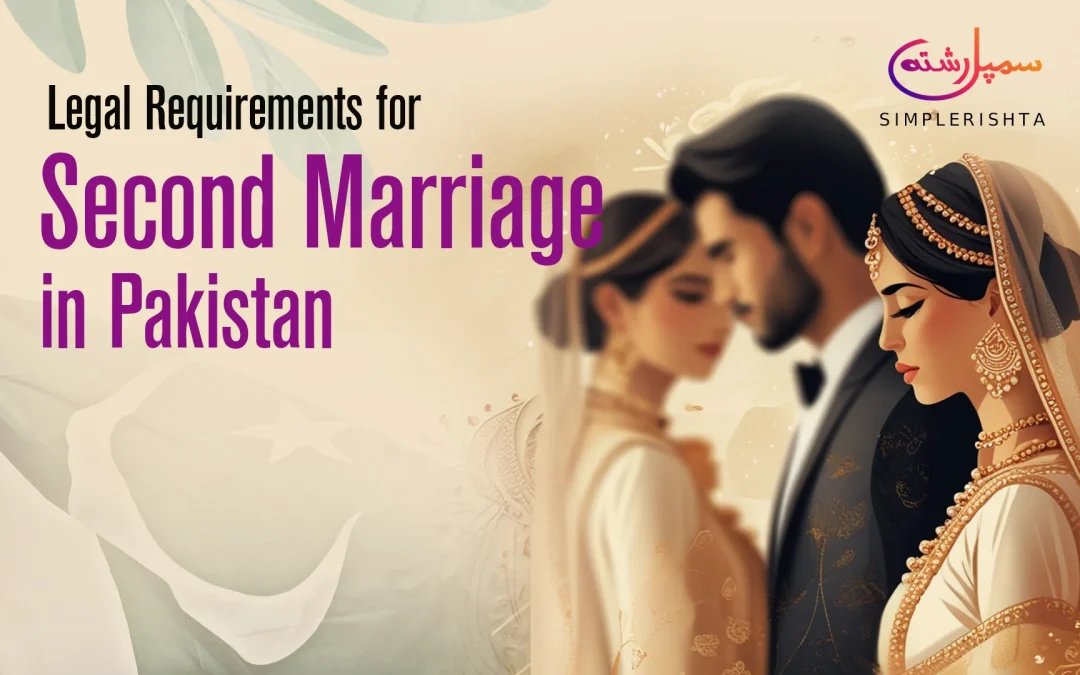In many societies, it’s common for men to think of a second marriage as their right. It is often fueled by the belief that it’s something they’re entitled to. However, the concept of second marriage in Pakistan is deeply rooted in Islamic principles. Which primarily permits it to ensure that women—whether virgins, widows, or divorcees—can remarry at any stage of life.
Yet, in our society, many men dream of a second marriage. Even they don’t fully understand the responsibility that comes with it.
However, the reality is that very few can actually bear the burden of another marriage. Even though a second marriage in Islam doesn’t require a wife’s consent. But the excitement quickly fades when they realize that, in Pakistan, they must go through the legal process of obtaining a permission letter (dosri shadi ka ijazat nama).
Islam’s Perspective on Second Marriage
In Islam, a man is permitted to marry up to four women; however, this is allowed only if he treats them equally in terms of rights and responsibilities. Moreover, this allowance comes with strict conditions. For instance, if a man wants to do a second marriage, he must act justly and fairly toward his wives. In addition, he must offer equal emotional, financial, and social support to all of them. The Quranic verse 4:3 mentions:
“Then marry those that please you of [other] women, two or three or four. But if you fear that you will not be just, then [marry only] one.”
This sets the foundation for Islam second marriage permission. However, it’s not as simple as just saying “I do” again. In fact, it’s a serious commitment that comes with legal and moral responsibility. Even though Islam permits a second marriage, the truth is that it involves many complexities. Ensuring fairness and fulfilling all obligations make it a significant decision that should not be taken lightly.
Do I Need Permission from My Wife for a Second Marriage?
In Pakistan, the question “Do I need permission from my wife for a second marriage?” often arises. Legally speaking, under Islamic law, a man does not need the permission of his first wife for a second marriage. However, this doesn’t mean that there are no social or legal consequences. In fact, the question isn’t just a matter of permission. It also involves responsibility, transparency, and maintaining a balance between legal requirements and family harmony.
Therefore, the second marriage law in Pakistan has introduced a system to ensure transparency and fairness. Accordingly, for a second marriage in Pakistan, a man must inform his first wife and register the marriage with the Union Council. Moreover, if a wife feels that her husband is not treating her fairly, she has the legal right to petition the court.
Dosri Shadi Ka Ijazat Nama
In Pakistan, a man who is considering a second marriage must first legally submit a permission letter for a second marriage (dosri shadi ka ijazat nama) to the Union Council. This letter must confirm that the man is financially and emotionally capable of supporting multiple families. Moreover, this ensures that the second marriage will not violate the rights of the first wife or any children from the first marriage.
Usually, this permission letter (dosri shadi ka ijazat nama) serves as a formal request for permission and is part of the legal process of marrying again. Additionally, it also serves to protect the rights of the first wife and any children by ensuring the man is not taking on more than he can handle.
It’s important to note that while this document is necessary for a second marriage, the permission letter does not guarantee automatic approval. The man must meet specific criteria, such as proving his ability to maintain justice and equality in his relationships. Therefore, for anyone considering a second marriage, understanding and fulfilling the marriage law in Pakistan is crucial.
Understanding the Need for Permission
A second marriage can have legal and emotional implications, particularly in cultures or religions where monogamy is the default marital arrangement. Permission may be required from:
- In some places, if the first marriage is still going on, the law says you need to get permission from your current spouse before marrying again.
- For people following religious rules like Islamic law, they often need permission from a religious leader or council to marry a second time.
- In some countries, you need approval from a court to marry again. Especially if the first spouse doesn’t agree.
Components of a Permission Letter
A permission letter for a successful second marriage must be professionally structured, detailed, and respectful. The key components include:
1. Salutation
Address the appropriate recipient, such as a spouse, religious leader, or legal body.
2. Introduction
Begin with a clear statement of intent and the purpose of the letter.
3. Justification
Explain the reasons for seeking a second marriage. Be honest and considerate.
4. Details of the Proposed Marriage
Provide details about the prospective spouse, including reasons for choosing this individual.
5. Commitments
Assure the recipient of fair treatment, especially if it involves financial support or shared responsibilities.
6. Closing Statement
Express gratitude for considering the request.

Common Challenges and Solutions
- The first spouse may feel hurt or upset about the idea of a second marriage. It’s important to speak to her with empathy and respect to avoid any misunderstandings.
- Complicated laws or paperwork can make remarriage difficult, especially if the first spouse disagrees. It’s best to understand the laws and consult a lawyer to ensure everything is done correctly.
- Family or cultural traditions may not support a second marriage, causing tension or conflict. Explain your reasons clearly to help your family and culture understand and support your decision.
Key Points for Writing the Letter (dosri shadi ka ijazat nama)
- Make your points simple and easy to understand.
- Use polite language, especially for sensitive issues
- Attach any necessary legal or religious papers.
Second marriage in Pakistan is a significant step that requires thoughtful consideration and clear communication. Thus, asking for permission for a second marriage (dosri shadi ka ijazat nama) is a big step. Therefore, it requires careful thought and clear communication.
Whether you’re reaching out to your spouse, a religious leader, or a legal authority, the way you write your letter can open the door for a positive and understanding conversation. By keeping things fair, transparent, and respectful, you can handle this delicate situation with responsibility—and maybe even a little bit of grace!
Frequently Asked Questions
Is a marriage valid without the permission of the first wife for a second marriage?
Yes, the second marriage is religiously valid in Islam. However, permission from the first wife and the Arbitration Council (Union Council) is required under Pakistani law.
Is it necessary to get the first wife’s permission for a second marriage?
Religiously, no; but under Pakistani law, yes, her permission is required.
How to get permission for a second marriage in Pakistan?
Submit a written request to the first wife. Apply to the Union Council with reasons for a second marriage. The council evaluates fairness, financial capability, and reasons before approval.
What are valid reasons for a second marriage in Pakistan?
Common reasons include:
- Infertility or serious illness of the first wife
- Inability of the first wife to fulfill marital obligations
- Other valid personal or social reasons, subject to council approval
Is there any documentation required for the second marriage?
Yes, documents may include:
- Marriage contract (Nikah Nama) of the first wife
- Written request to the first wife
- Application to the Arbitration Council
- Any supporting evidence for valid reasons



Good info.